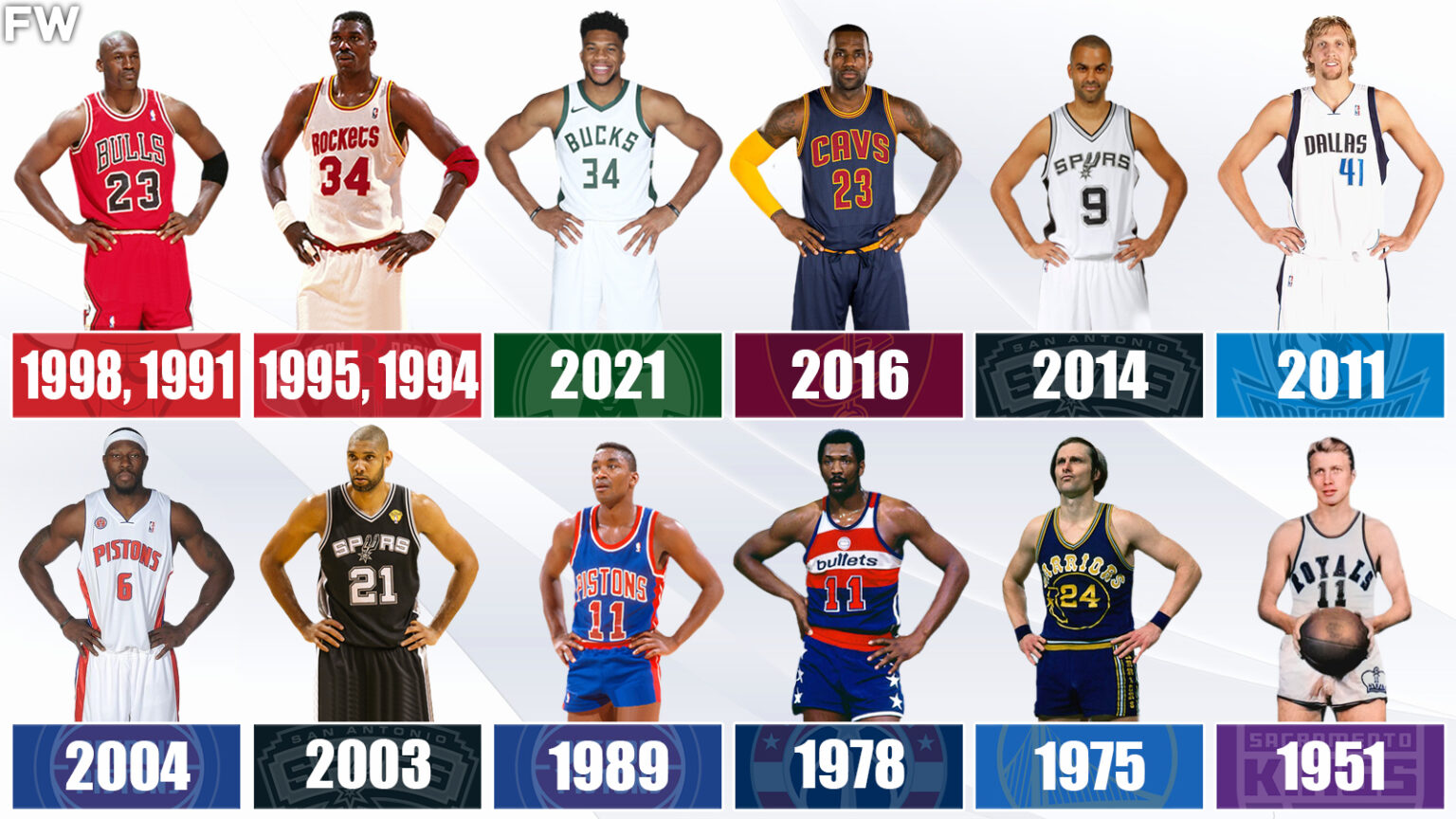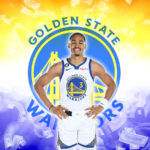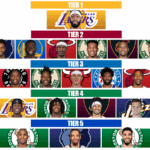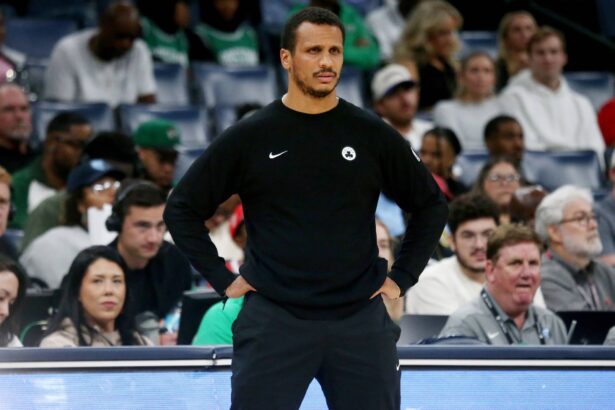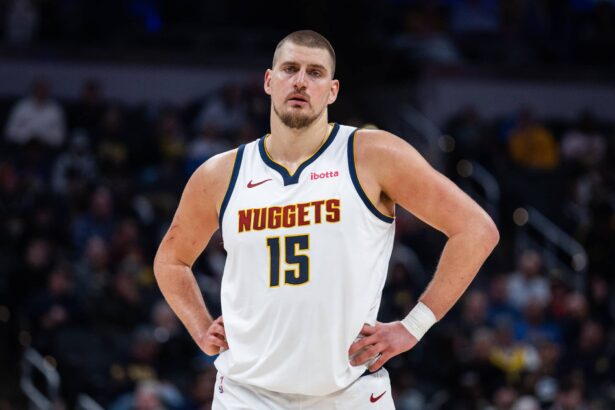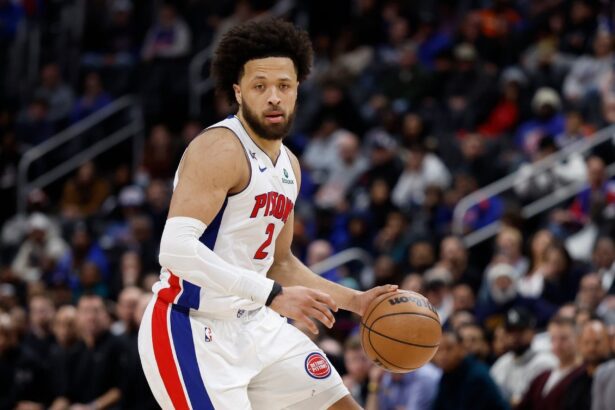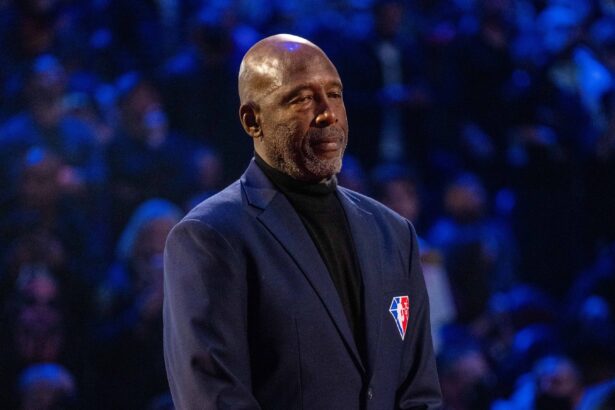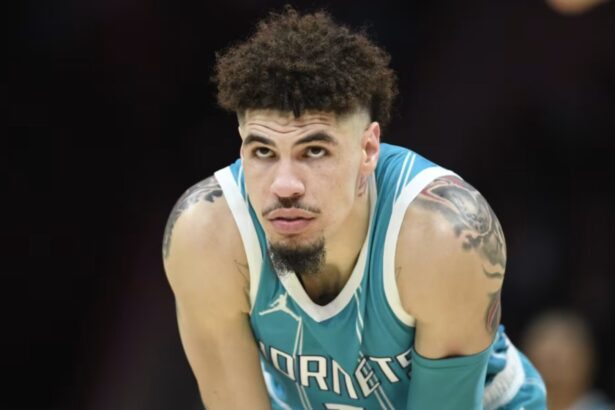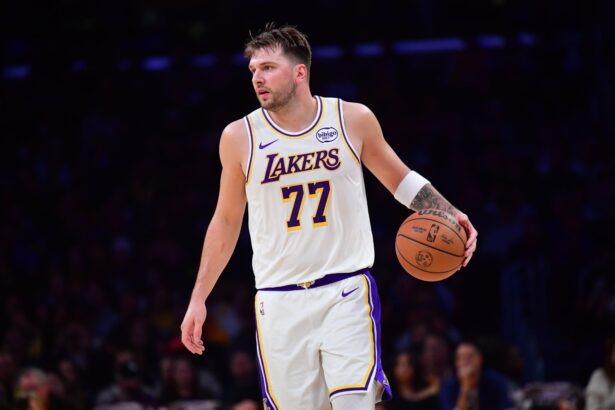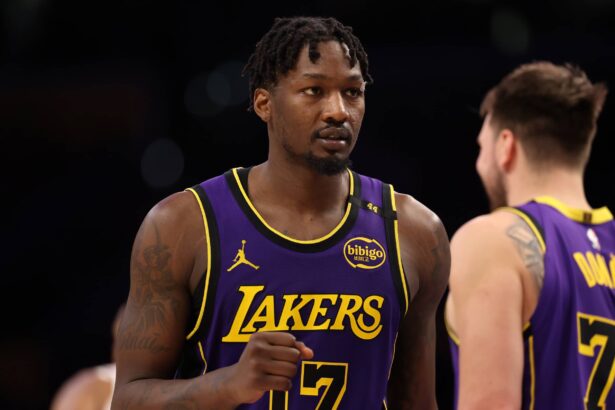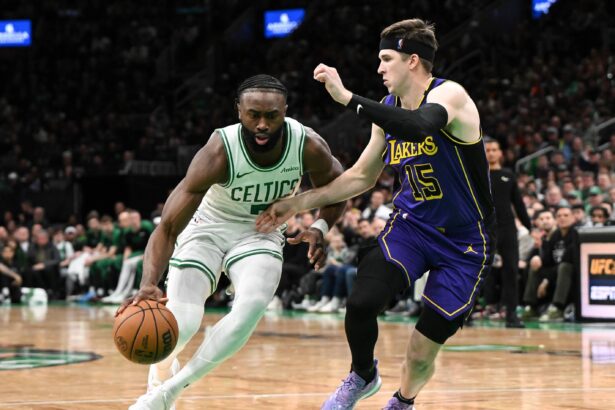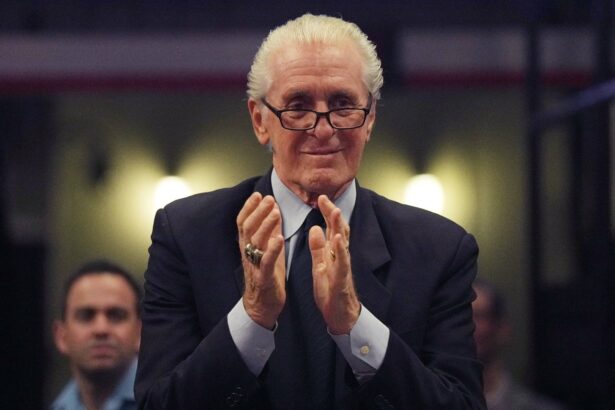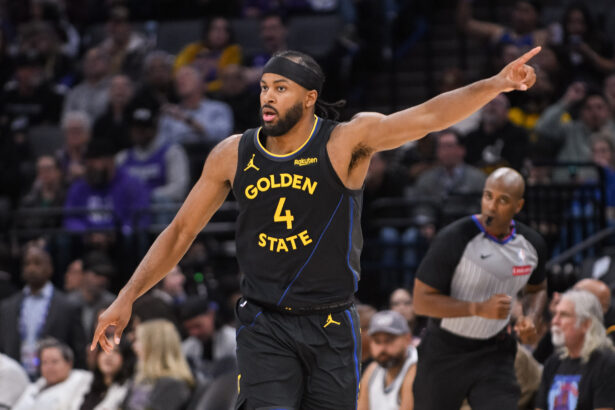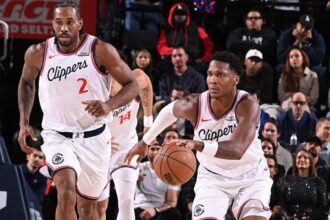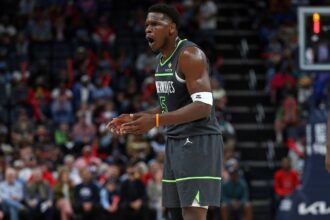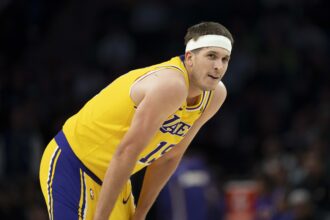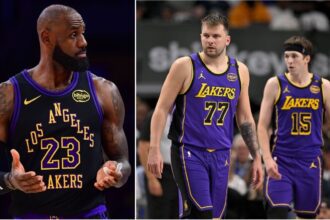Stop me if you have heard this one before. “Get (enter superstar’s name here) some help! He can’t do it all on his own!” The truth is, it takes a great team to win an NBA championship. Sure, having an NBA superstar as the leader of a team and as the go-to guy is an advantage but usually, a team will only go as far as the complimentary parts take them. It takes an entire organization to build a champion, but sometimes, that is not the case.
Every once in a while, a player will hit a certain gear with their game that can only be described as special. This player is so dominant and so methodical in their ways that the absence of another All-Star or All-NBA-type player isn’t needed. Even on these miraculous runs, the supporting casts do step up and play their role perfectly to complement their star’s output. I want to be clear about the criteria for the 14 players below. It does not matter if they played with an All-Star caliber player unless that player was voted as an All-Star that particular season. For example, in 2004, there were numerous players worthy of an All-Star selection, but only one was voted in as they went on to win an NBA championship.
There are currently four players in the NBA playoffs who have a chance to join this list this season still remaining. Joel Embiid, LeBron James, Nikola Jokic, and Kevin Durant were all All-Stars this season, with no teammates joining them in the honor. Now, of course, there are All-Star-caliber teammates for all four of these players, but none were actually All-Stars in 2022-23, and that is what we are talking about. We know Devin Booker is playing like Michael Jordan right now, and we know Anthony Davis has been the best player on the floor for the Lakers. However, their lack of an All-Star selection this season warrants their teammates joining this list.
These are the NBA players who won a championship without an All-Star teammate.
Bob Davies – 1951
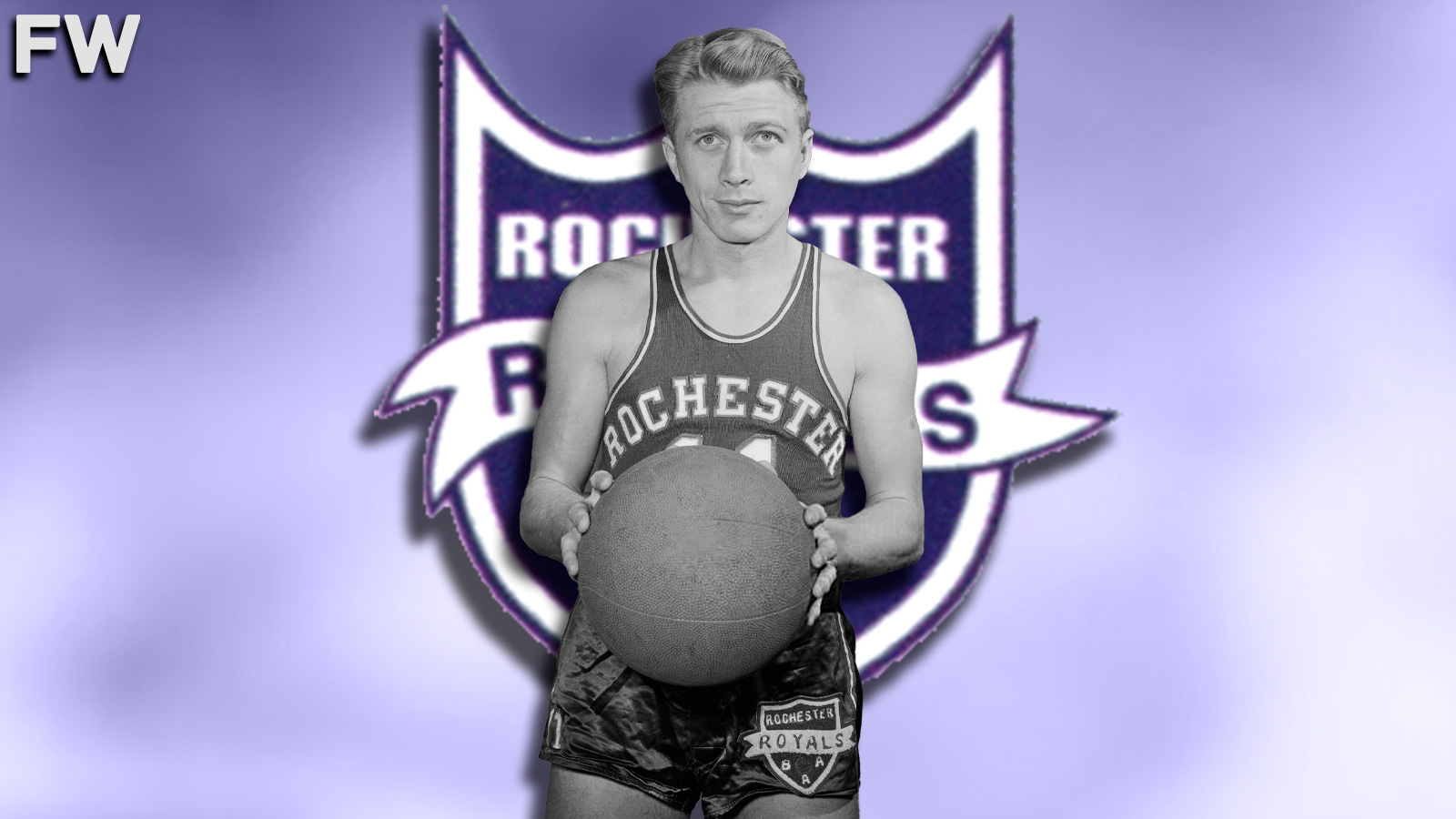
Bob Davies is by no means a household name unless you grew up watching him play during the 1950s with the Rochester Royals. Davis would play just seven full seasons in the NBA from 1949 thru 1955, earning four All-Star selections in total in his career. Davies was a career 14.3 PPG scorer who dished out 4.9 APG, winning an assists title in his rookie season with just 5.4 APG.
During the 1950-51 season, Davies earned his first All-Star selection with Rochester averaging 15.2 PPG and 4.6 APG. He would lead the Royals to a 41-27 record that season which qualified them for the NBA playoffs. After two easy rounds against the Lakers and Pistons, they headed to the Finals to take on the Knicks. Now, the Royals had Arnie Risen as well as Davies, but Risen would not be an All-Star during the 1951 season. He would, however, lead the playoffs in both scoring and rebounds to help Rochester win the NBA championship. In the NBA Finals, Davies would average 17.0 PPG and 5.3 APG, while Risen averaged 21.7 PPG and 14.3 RPG.
Rick Barry – 1975
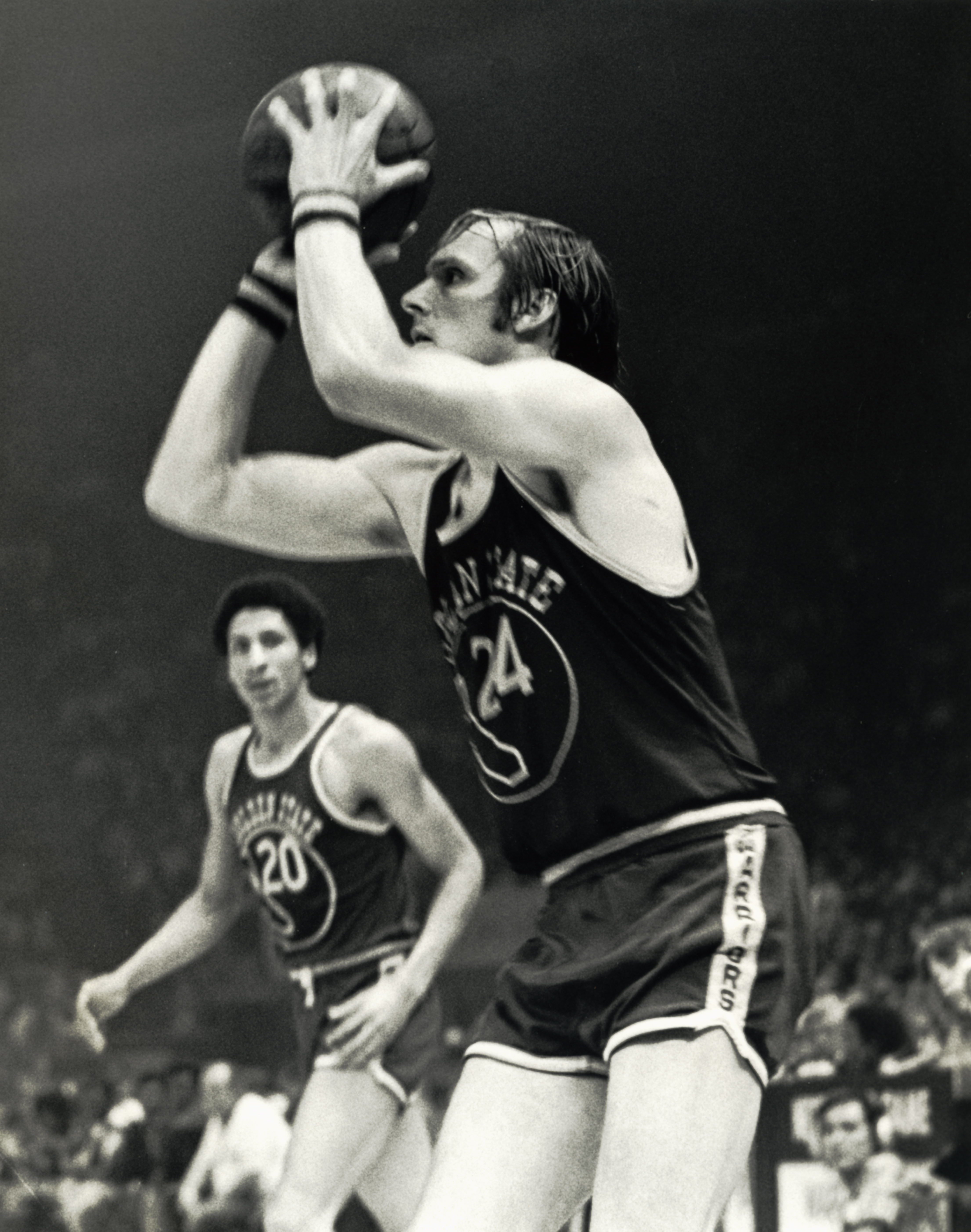
Rick Barry is one of the most prolific scorers in NBA and ABA history. He also happens to be one of the greatest Golden State Warriors in franchise history, and his run to the 1975 NBA championship is a big reason why. Barry got his start with the Warriors in 1965-66, where he would stay for two seasons before declaring to play in the ABA. Barry would play four seasons in the ABA before returning to the Warriors. In just his third season back from his hiatus, Barry would average 30.6 PPG and lead the NBA in steals while leading the Warriors to a 48-34 record.
In the NBA playoffs, things got a bit rough for the Warriors after receiving a first-round bye. They struggled a bit with Seattle, defeating them in six games, and in the Eastern Conference Finals, they would need seven games to defeat the Chicago Bulls. In the NBA Finals, the Warriors were set to take on the Washington Bullets led by Wes Unseld and Elvin Hayes. It would be the Warriors’ easiest series of the playoffs as they went on to sweep Washington in four games. Barry would be named Finals MVP, averaging 29.5 PPG, 4.0 RPG, and 5.0 APG.
Elvin Hayes – 1978
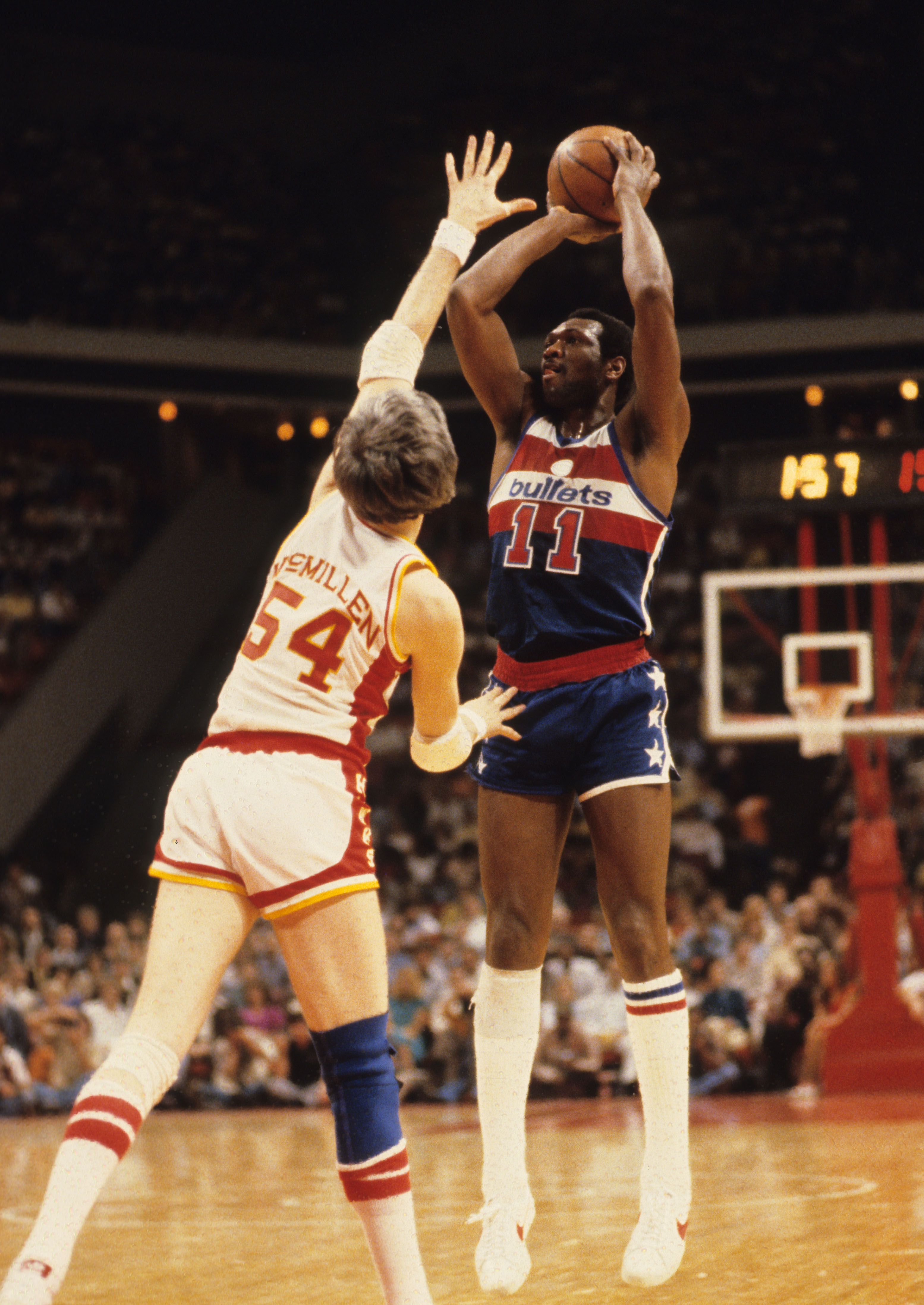
Elvin Hayes is one of the greatest power forwards to ever play the game and never gets the credit he deserves for an outstanding career. Maybe it’s because his teammates didn’t like him. Maybe it’s because he and the media almost came to blows numerous times. Whatever the case, it is completely wrong. Hayes was drafted first overall by the Rockets back in 1968 and would spend three seasons with the team before being traded to the Bullets.
Hayes would play nine seasons with the Bullets from 1973 thru 1981, earning multiple opportunities to win an NBA championship with the team they had built. None were more special than the 1978 run when Hayes and teammate Wes Unseld led them to the franchise’s only NBA championship. Hayes was the only All-Star and probably should have been MVP but see the above issue he had with the media as to why he didn’t. In the NBA Finals, Hayes would average 20.7 PPG, 11.9 RPG, and 2.0 BPG in their seven-game series win over Seattle. However, Unseld would become the lowest-scoring Finals MVP ever, as he averaged just 9.0 PPG and 11.7 RPG in the series.
Isiah Thomas – 1989
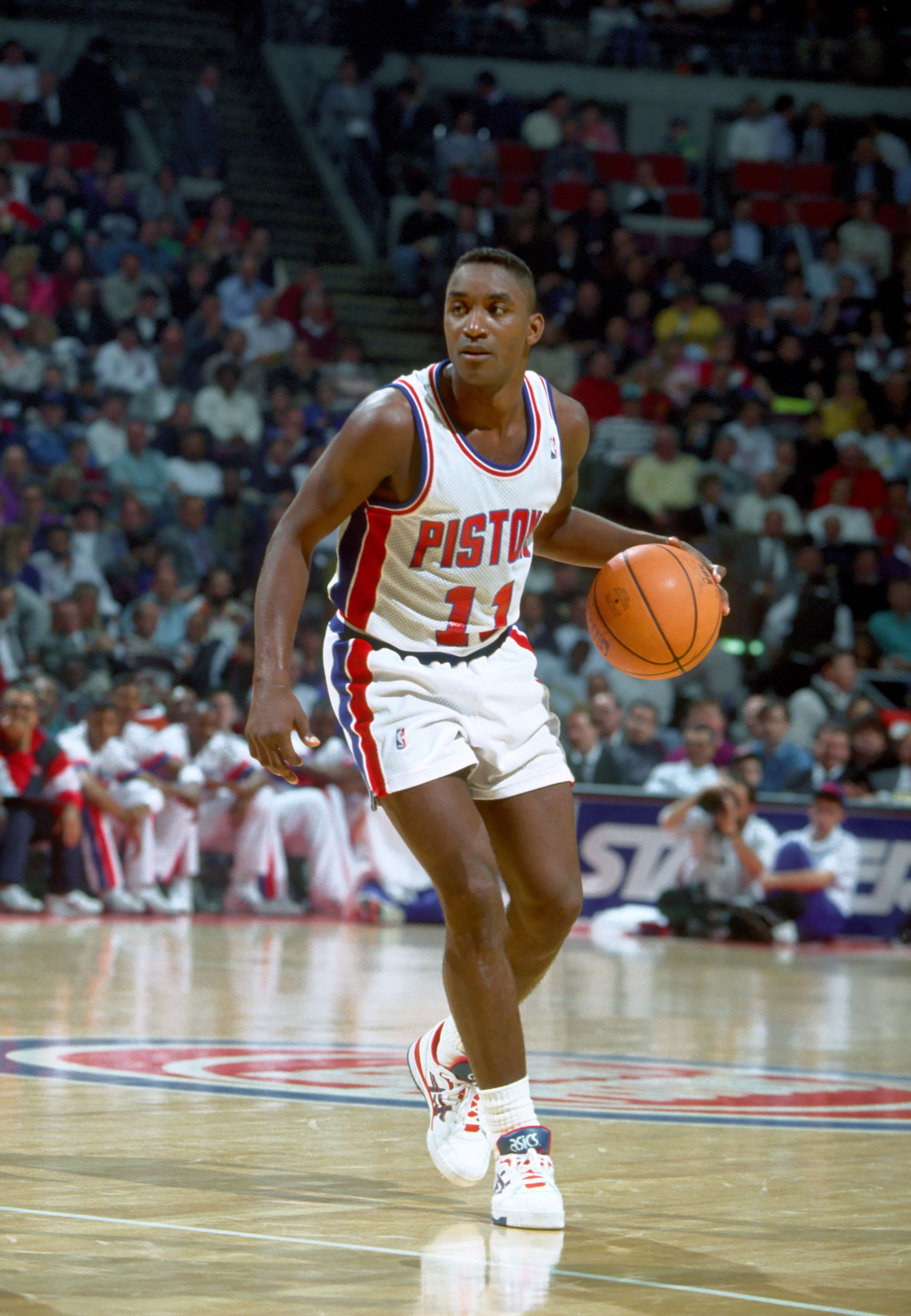
I do not believe there has ever been a team more hated in NBA history than the Bad Boy Pistons, unless you’re from Detroit, of course. The leader and face of those teams was undoubtedly Isiah Thomas, one of the greatest point guards in NBA history and a true testament to how far heart, passion, and toughness can take you in the sport of basketball. There was a ton of skill involved, too, of course.
Thomas and the Pistons would make their way to the 1989 NBA Finals one year after losing in the 1988 series to the Lakers. Thomas led the way as the team’s only All-Star averaging 18.2 PPG and 8.3 APG for the entirety of the playoffs. In the Finals, it would not be Thomas who walked away with Finals MVP honors after defeating the Lakers in a four-game sweep. Joe Dumars would take the distinction for the 1989 Finals, while Thomas would have to wait a year for his Finals MVP award.
Tim Duncan – 2003

For the first time on this list, we run into a season in which a player won the MVP award, NBA championship, and Finals MVP all in the same season. Tim Duncan was the best player in basketball during the 2003 season, leading the Spurs to their second NBA championship in franchise history. As good as Duncan was that season, he led the Spurs to 60 wins despite only three of his teammates even reaching 10.0 PPG for the year. The Spurs were the third-ranked defense in basketball, largely in part thanks to Duncan’s 2.9 BPG.
Duncan would lead the Spurs to six-game series wins over the Suns, Lakers, and Mavericks to reach the NBA Finals in 2003, where they would take on a hungry New Jersey Nets squad. Duncan would have one of the greatest Finals series ever by a player when he averaged 24.2 PPG, 17.0 RPG, 5.3 APG, and 5.3 BPG. His support consisted of 14.0 PPG and 4.2 APG from Parker as well as just over 10.0 PPG from David Robinson and Stephen Jackson. Duncan’s performance is not the last time the Spurs will show up on this list, but it will be the final time we mention Duncan.
Ben Wallace – 2004
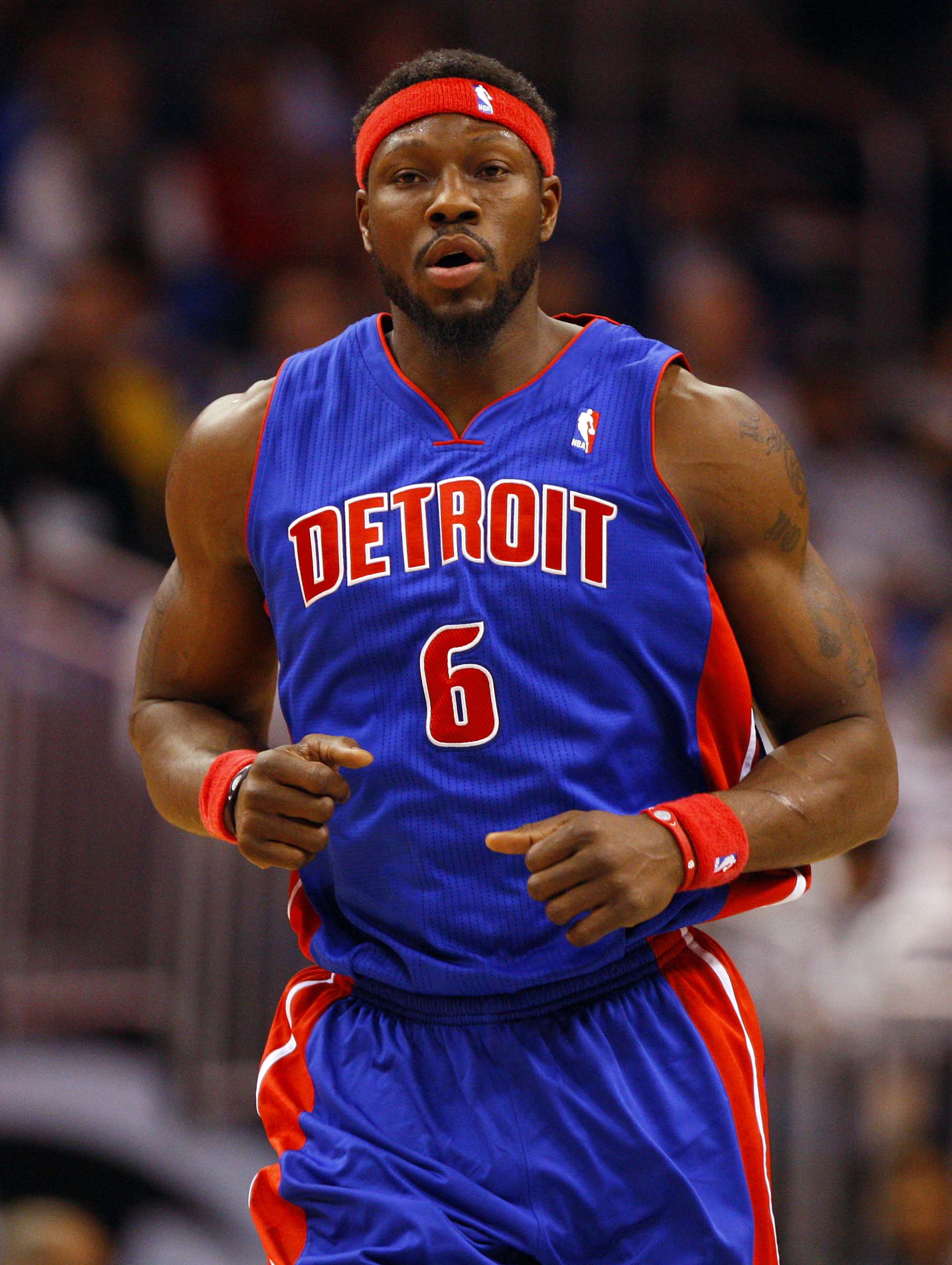
There have not been many defenders in NBA history who were as impactful as Ben Wallace was during his prime in the 2000s. Wallace is a four-time Defensive Player of the Year during this time, which ties him with Dikembe Mutombo for the most in NBA history. He was the most feared interior defender in basketball, blocking and altering shots at an exponential rate while being built like a Greek God.
It is pretty interesting that Wallace was the only All-Star with the Pistons that season considering the team was made up of stars like Chauncey Billups, Rip Hamilton, and Rasheed Wallace. Ben definitely stole the show that season and in the NBA Finals. It was Wallace’s stifling defense on Shaq in the series that made it easier for Detroit to pull off the massive upset over the Lakers. Wallace was the only one who could match O’Neal’s strength and physicality without blinking an eye, and it showed. It was the reason he was an All-Star and, ultimately, the reason why he became an NBA champion.
Dirk Nowitzki – 2011
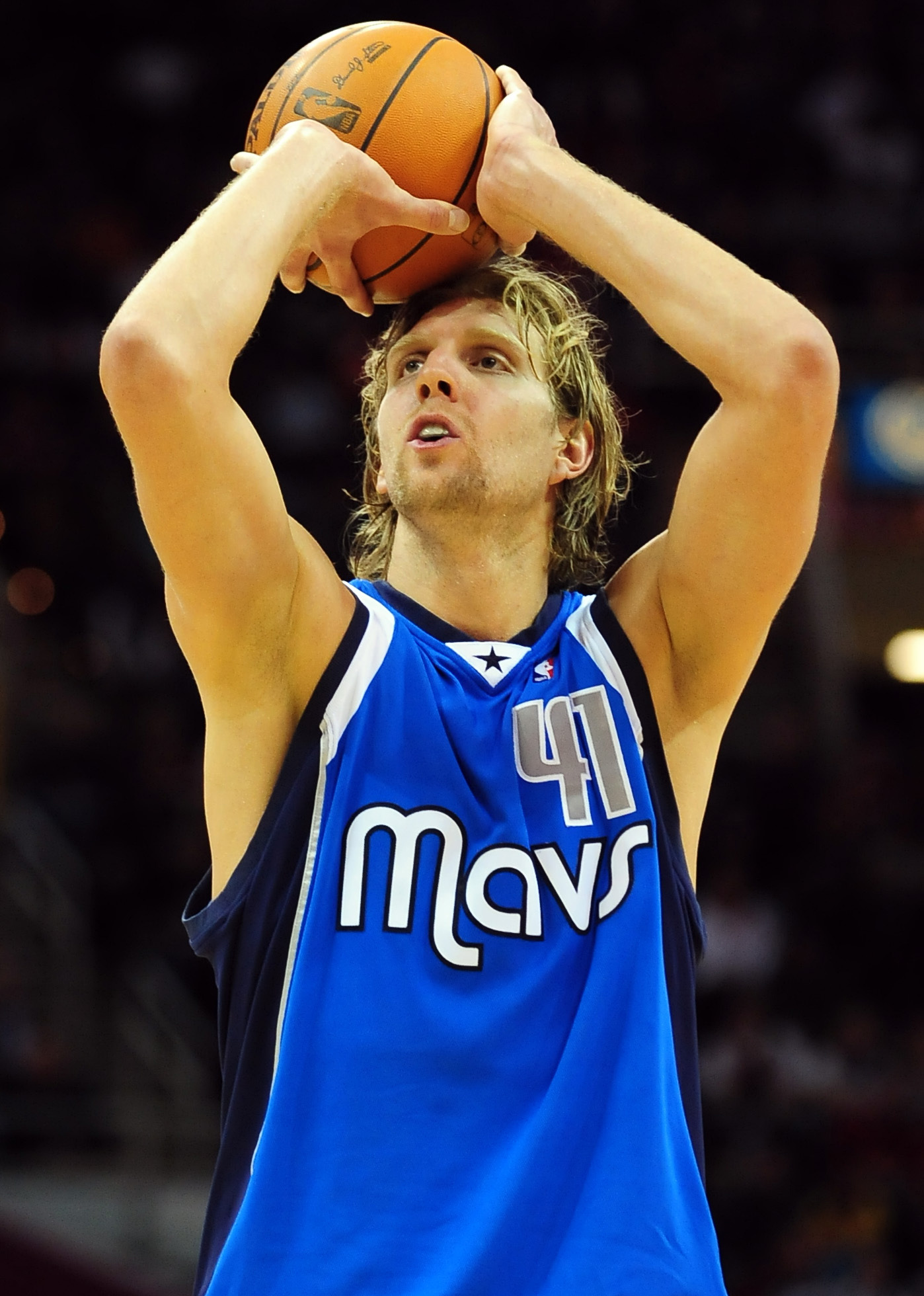
As the NBA headed into the 2010-11 season, there were narratives swirling around the league about Dirk Nowitzki and if he could ever lead a team to a championship. He had blown the 2006 NBA Finals to the Miami Heat and been upset in the first round of the playoffs after leading Dallas to the best record in basketball and winning MVP. With the cat he had around him in 2011 having no All-Stars, nobody thought Nowitzki could navigate the Mavericks through a stacked Western Conference. They were wrong.
In the NBA playoffs, Nowitzki would become a man-possessed and determined to capture his first NBA title. En route to the NBA Finals, Nowitzki took out the Kevin Durant-led Thunder and also the two-time defending NBA champion Los Angeles Lakers. In the NBA Finals, nobody gave Dallas a chance, with their opponent being the Big 3 of LeBron James, Dwyane Wade, and Chris Bosh of the Miami Heat. Nowitzki didn’t get the memo as he led the Mavericks to victory in six games. Of course, he had contributions from Jason Terry, Tyson Chandler, Jason Kidd, and JJ Barea, but the spotlight was on Dirk, and rightfully so. Dirk finally had his championship in one of the most amazing runs to an NBA championship in history.
Tony Parker – 2014
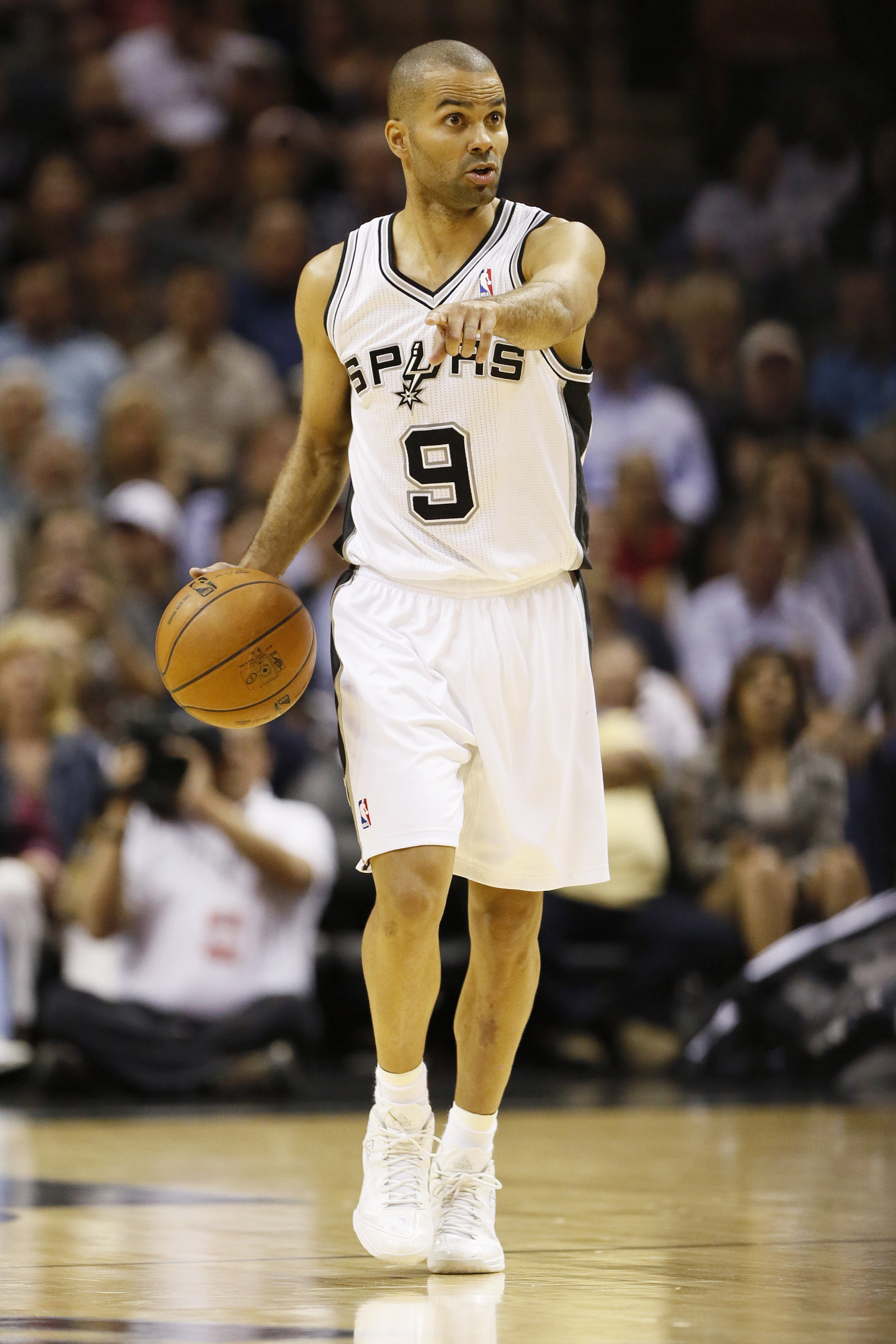
One of the most underrated players in NBA history has to be four-time NBA champion, Tony Parker. For 17 seasons, Parker helped direct the dynasty that was the San Antonio Spurs along their journey to four of their five NBA championships. Parker was fearless in his pursuit of success as he drove the lane and attacked the basket against some of the most dominant big men in league history.
The 2014 season was a weird one for the Spurs and how they were built. Tim Duncan was toward the end of his career and no longer seen as an All-Star, while Kawhi Leonard was still a young pup and not nearly the player he is known as today. Meanwhile, Parker got the only All-Star nod for San Antonio while the Spurs won 62 games as a unit. In the NBA Finals, Parker helped the Spurs get their revenge from 2013, taking down the Miami Heat in five games after they had defeated the Spurs in seven games the year prior. Of course, a legend was born during that series as Kawhi Leonard won the Finals MVP. We cannot forget what Parker meant to that team, though, as they won their fifth NBA title.
LeBron James – 2016
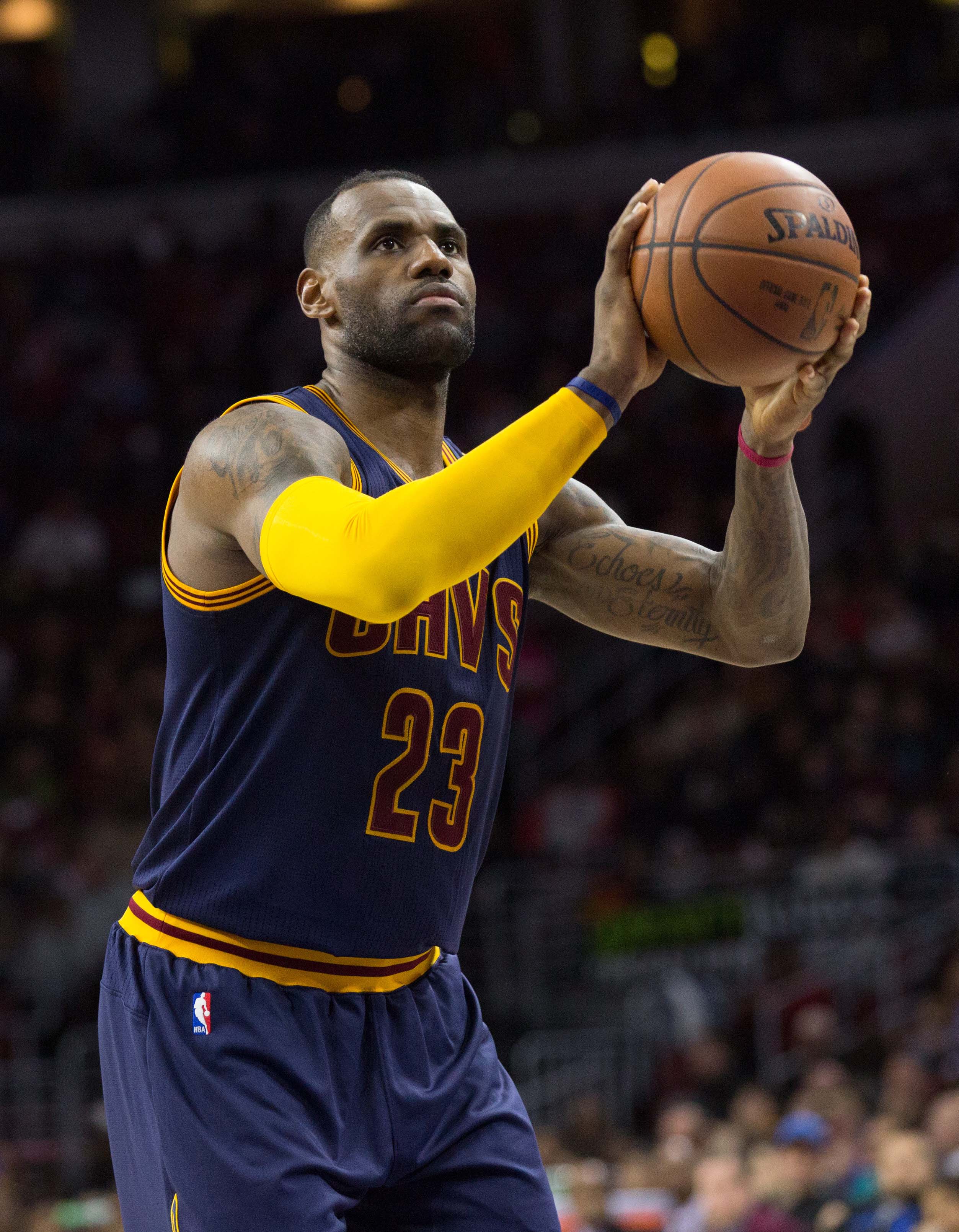
There should be no doubt as to where LeBron James stands when it comes to his place among the NBA greats. If he isn’t in your top three, I cannot agree. I can respect anyone’s opinion, but I do not have to conform. James has been incredible for the last 20 years, conquering every facet of the game and every record that you can think of for the regular season and playoffs. He is the ultimate floor-raiser, and what I mean by that is you can give LeBron four random players, and you still would have a chance at an NBA championship.
The same was the story for 2016. Of course, this Finals was not a series you could consider a “carry job” but it was incredible nonetheless. After falling down 3-1 in the Finals to the 73-9 Golden State Warriors, James found another level to his game that I don’t even think he knew he had. He would lead the Cavaliers to three straight wins and their first title in franchise history. As he capped off the greatest upset in NBA playoff history, James stood among the greatest to ever play the game which is where he will remain for the rest of time.
Giannis Antetokounmpo – 2021
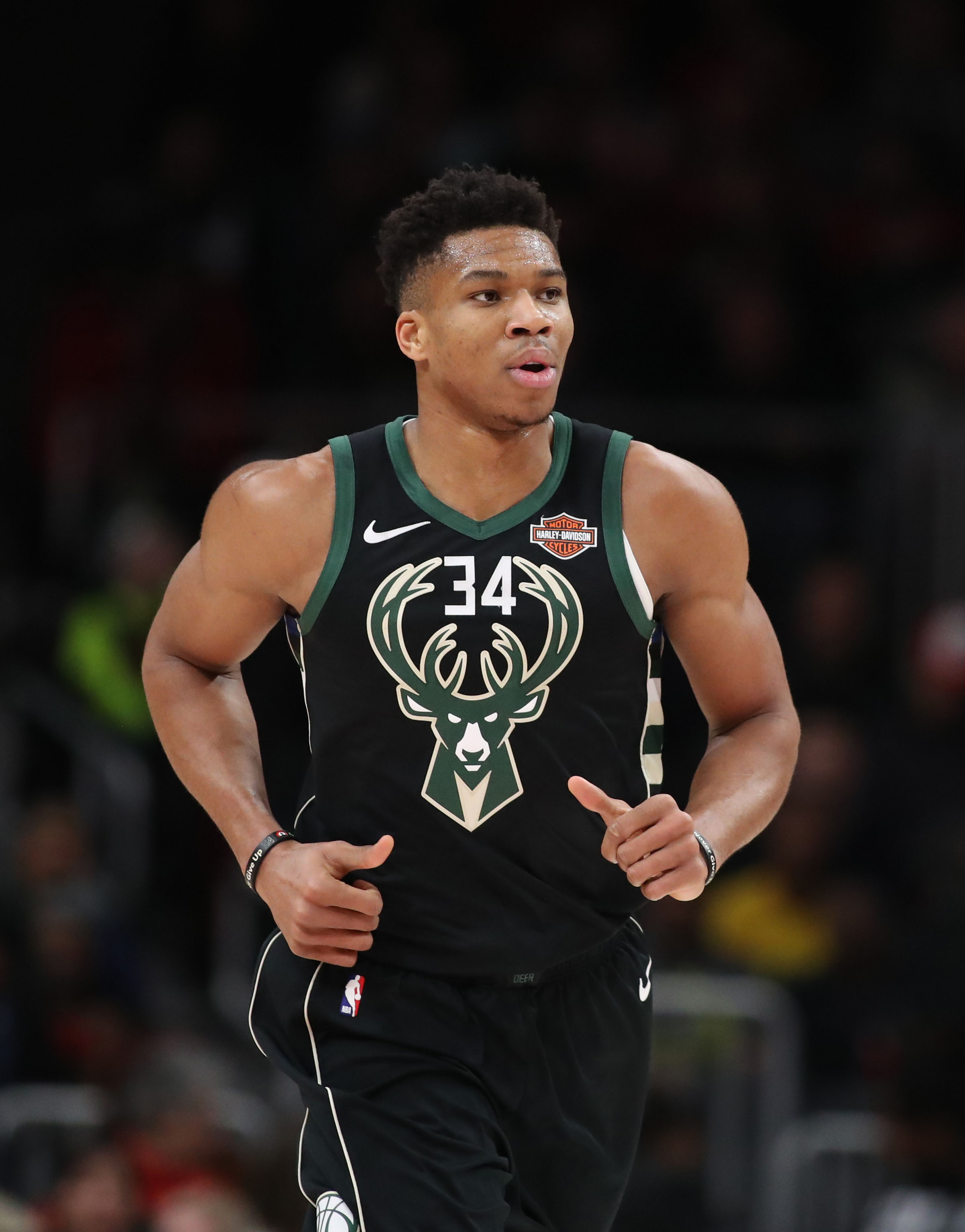
The 2020-21 season has to be one of my favorite basketball seasons over the last 30 years. We had finally escaped the Bubble format, and fans slowly began to make their way back into arenas across the nation. At the same time, one man, Giannis Antetokounmpo, was getting ready for another start to the season after a disappointing end to the previous one. Giannis was incredible in 2021, being named a finalist for both MVP and Defensive Player of the Year, just as he won both awards the year prior. His supporting cast was fantastic, with Jrue Holiday and Khris Middleton all spending their first season together.
The Bucks fought and fought to shed the choke artists label they had been given, led by Giannis, who was unstoppable on the court. After navigating a grueling Eastern Conference, the Bucks found themselves in the NBA Finals against the Phoenix Suns. The Bucks fell behind 2-0 in the series before Giannis decided to take the gloves off. He would lead Milwaukee to four straight wins to capture their first championship since 1971, which was capped off by an incredible 50-point performance by Giannis in Game 6. He was named Finals MVP and shed the choke artist label forever.
Hakeem Olajuwon – 1994 And 1995
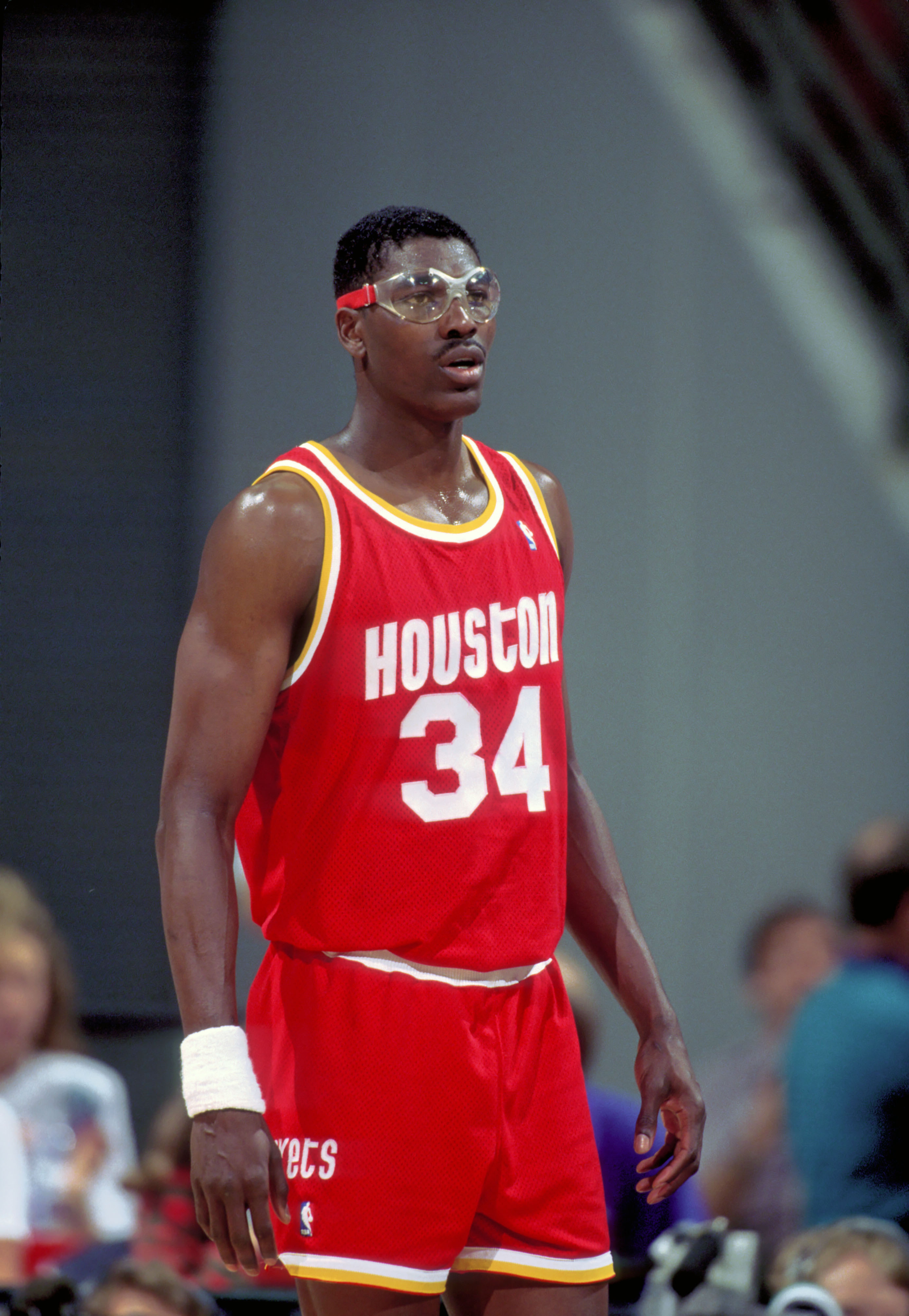
The 1994 and 1995 NBA championships won by Hakeem Olajuwon and the Houston Rockets are two of the most memorable championships in NBA history. In 1994, Olajuwon became both MVP and Defensive Player of the Year while leading the Rockets to 58 wins. Sure, he had a decent supporting cast but no All-Stars or All-NBA teammates. He would lead the Rockets to the NBA Finals against the Knicks, where they battled in a 7-game series. In the end, it was Olajuwon who emerged victorious as Finals MVP, averaging 26.9 PPG, 9.1 RPG, and 3.9 BPG.
The following season, things got much tougher for Houston. They got off to a really rocky start which was somewhat alleviated when they acquired Clyde Drexler from Portland during the season. Olajuwon would once again be the man to help them advance to the NBA Finals against a young Shaq and the Orlando Magic. For the first time, we watched as O’Neal was dominated and confused by Olajuwon, which led to a four-game sweep and a second straight NBA championship. Once again, Hakeem was named Finals MVP when he averaged 32.8 PPG, 11.5 RPG, 5.5 APG, 2.0 SPG, and 2.0 BPG.
Michael Jordan – 1991 And 1998
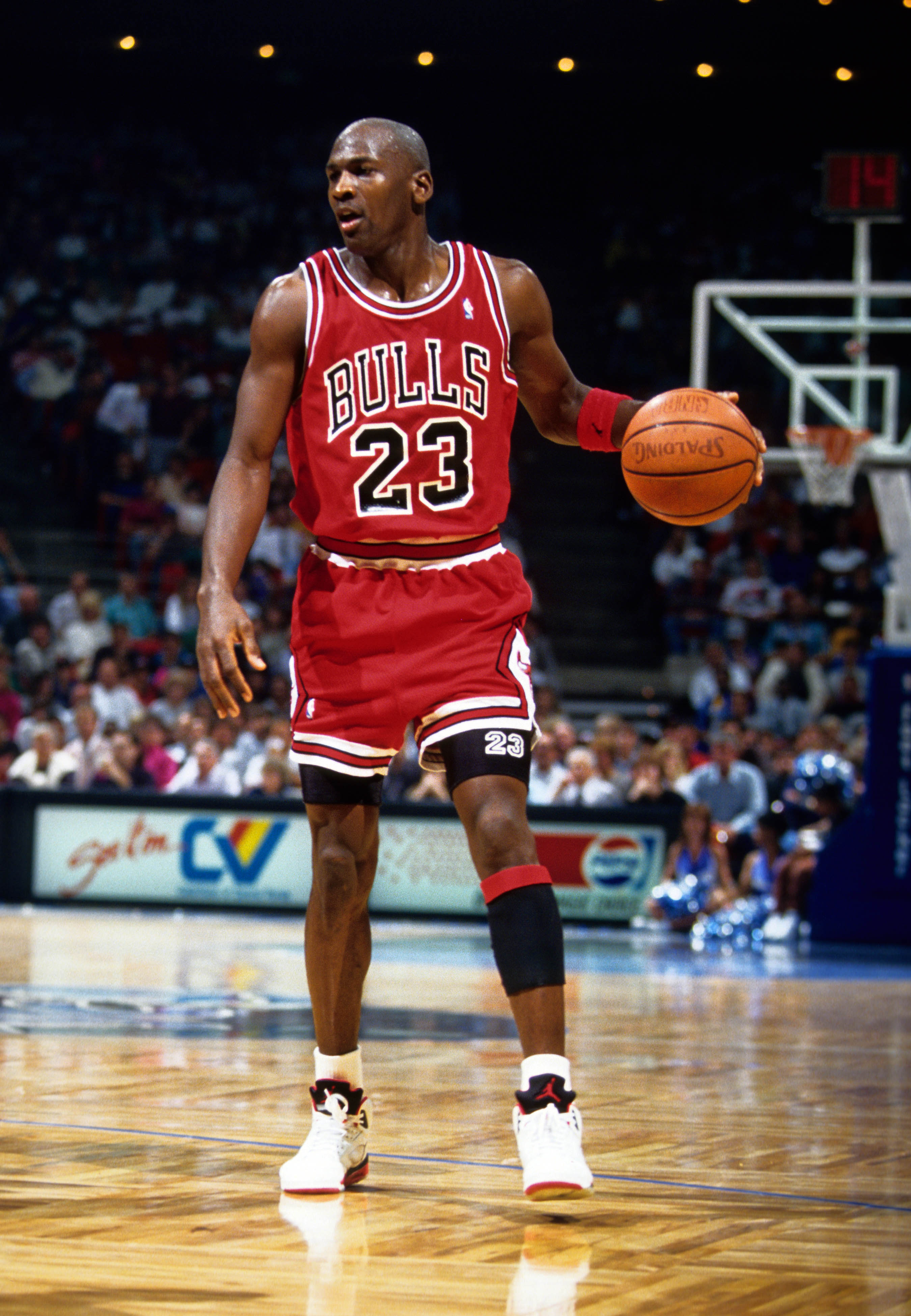
It actually makes sense that Michael Jordan started his championship-winning ways and ended them without another All-Star teammate. In 1991, Scottie Pippen was just coming into his own in the Bulls’ system. Horace Grant and others were great complementary pieces as well, but Jordan was their heart and soul, as he always was. In the 1991 Finals, Jordan and Magic finally collided with all the marbles on the line. It would be Jordan and the Bulls prevailing in five games as Jordan torched Magic on offense while shutting him down on defense. He was named Finals MVP for the first time averaging 31.2 PPG, 6.6 RPG, 11.4 APG, and 2.6 SPG.
Eight seasons later, with five NBA championships and five Finals MVP awards, Michael Jordan and the Bulls headed into their final season together. The writing was on the wall, and Jerry Krause had made it clear that the team was ready to rebuild. Jordan responded in the only way he knew how, and that was to get to the big stage at the end of the season. There, the Bulls met the Utah Jazz in a rematch from 1997. In Game 6, Jordan cemented his legacy as the GOAT with a clutch steal from Karl Malone and a clutch bucket over Bryon Russell to capture his sixth NBA championship and NBA-record sixth Finals MVP award.
We sincerely appreciate and respect you as a reader of our site. It would help us a lot if you follow us on Google News because of the latest update.
Thanks for following us. We really appreciate your support.

